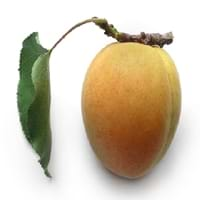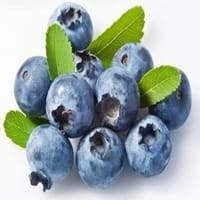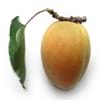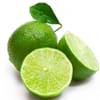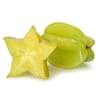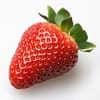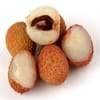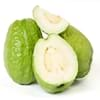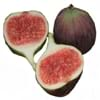Health Benefits
Asthma treatment, Cancer prevention, Controls blood pressure, Digestive aid, Heart care, Maintains hormonal balance, Regulation of heart rate, Skin cleansing, Skin rejuvenation
Cancer prevention, Cures gastro-intestinal troubles, Improves night vision, Improves stomach health, Prevents diabetes, Prevents high blood pressure, Reduces blood circulation problems
General Benefits
Boosts immune system, Controls blood pressure, Digestive aid, Eye care, Maintains healthy cholesterol level, Strengthens bones
Fights against infections, Helps in weight loss, Prevents blood clotting in vessels, Treatment of urinary tract infections
Skin Benefits
Hydrates skin, Reduces wrinkles, Treatment of dark spots, Treatment of skin diseases
Anti-aging benefits, Nourishes skin, Protects against skin damage
Hair Benefits
Good conditioner, Regulates hair growth, Rejuvenates scalp, Softening mask, Treatment of dandruff
Prevents hair loss
Allergy Symptoms
Abdominal cramps, Anaphylaxis, Breathing difficulty, Diarrhea, Itching of mouth, Itching sensation in throat, Swelling of mouth, tongue or lips, Vomiting, Wheezing
Not Available
Side Effects
Dizziness, Headache, Nausea, Vomiting
Decrease in blood sugar levels, Diarrhoea, Dizziness, Headache, Internal bleeding, Stomach pain
Best Time to Eat
Best if taken as a breakfast (or empty stomach), As a snack in the late afternoon, Don't consume at night and before bed, Eat the fresh ones, avoid mixing with any other foods, don't eat after meal.
As a snack in the late afternoon, Don't consume at night and before bed, Eat the fresh ones, avoid mixing with any other foods, don't eat after meal., Morning time (before lunch)
Vitamin B5 (Pantothenic Acid)
Vitamin C (Ascorbic Acid)
Vitamin K (Phyllochinone)
Phytosterol
Not Available
Calories in Fresh Fruit with Peel
Calories in Fresh Fruit without Peel
Not Available
Not Available
Calories in Frozen Form
Not Available
Not Available
Calories in Dried Form
Not Available
Calories in Canned Form
Not Available
Varieties
Gold Cot, Tilton, Wenatchee, Goldbar, Gold Kist, Tomcot, Harcot, Brittany Gold, Harglow, Hunza, Moorpark, Patterson and Royal Rosa
Dwarf bilberry, Piper, bog blueberry, Northern bilberry, Mountain bilberry and Oval-leaved bilberry
Color
Orange, Yellowish-orange
Dark purple
Inside Color
Yellow
Light Green
Taste
Smooth, Sweet
Sweet
Soil Type
Well-drained
Moist, Well-aerated
Climatic Conditions
Dry, Hot
Cold
Facts about
- 9 Jan is considered as the National Apricot Day.
- Apricots have been around for more than 4000 yrs.
- In latin, the meaning of apricot is 'precious'.
- 95% of apricots in the US are produced by California.
- Bilberries are used in manufacturing of alcoholic drinks.
- They are used to improve aromas of sorbets.
- The green extract of it's leaves is used in textile industry as natural dye.
Top Producer
Turkey
Japan
Other Countries
Algeria, Egypt, France, Iran, Italy, Morocco, Pakistan, Spain, Uzbekistan
Denmark, Finland, Iceland, Sweden
Top Importer
United States of America
United States of America
Top Exporter
France
Chile
Botanical Name
Prunus armeniaca
Vaccinium myrtillus
Synonym
Not Available
blaeberry, whinberry, European blueberry, whortleberry
Subkingdom
Tracheobionta
Tracheobionta
Division
Magnoliophyta
Magnoliophyta
Class
Magnoliopsida
Magnoliopsida
Subclass
Rosidae
Dillenhidae
Family
Rosaceae
Ericaceae
Species
P. armeniaca
Vaccinium myrtillus
Difference Between Apricot and Bilberry
We might think that Apricot and Bilberry are similar with respect to nutritional value and health benefits. But the nutrient content of both fruits is different. Apricot and Bilberry Facts such as their taste, shape, color, and size are also distinct. The difference between Apricot and Bilberry is explained here.
The amount of calories in 100 gm of fresh Apricot and Bilberry with peel is 48.00 kcal and 44.00 kcal and the amount of calories without peel is Not Available and Not Available respectively. Thus, Apricot and Bilberry belong to Low Calorie Fruits and Low Calorie Fruits category.These fruits might or might not differ with respect to their scientific classification. The order of Apricot and Bilberry is Rosales and Ericales respectively. Apricot belongs to Rosaceae family and Bilberry belongs to Ericaceae family. Apricot belongs to Prunus genus of P. armeniaca species and Bilberry belongs to Vaccinium genus of Vaccinium myrtillus species. Beings plants, both fruits belong to Plantae Kingdom.
